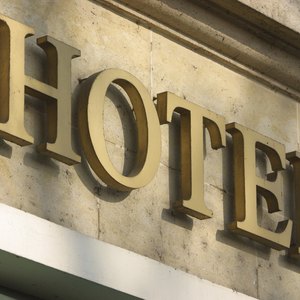
Most hotels have a cancellation deadline -- usually around 48 to 72 hours before check-in -- and will not charge your credit card if you notify them of your cancellation by then. However, Visa and other card issuers also hold hotels accountable for certain procedures, such as communicating their cancellation policies clearly and providing cancellation confirmation numbers. If they fail to do this, you may still qualify for a chargeback, even if you didn't call in and cancel.
Knowing Cancellation Policies
Whenever you make a hotel reservation, be sure you understand the hotel's cancellation policy. That way, you can call in and cancel according to the hotel's policy. Also, if you do cancel your reservation, make sure you receive a cancellation code as evidence. This is your proof of cancellation in case the hotel's employees mishandle your cancellation and you're charged anyway.
Following Credit Card Policies
Visa and other credit card companies expect hotels to handle cancellations a certain way. If they don't, you may have the ability to get a cancellation, even if you failed to call and cancel your reservation by the cut-off date and time. Visa requires that hotels provide you with a cancellation code and tell you to keep the code for future reference when you call to cancel. Afterward, they must write, "canceled" on your reservation form and record the cancellation number. If you ask for a written confirmation of your cancellation, they have to send it to you with a suppressed version of your card number, your name as it appears on your card and the cancellation code.
How Employees Follow Guidelines
According to the California Hotel and Lodging Association, Visa set up a study to test how hotel employees followed cancellation procedures. When making 1,000 reservations, they found that hotel employees did not consistently follow all the cancellation rules. Reservation employees gave a confirmation number in 88 percent of the reservations and communicated the cancellation date in 64 percent of the cases. However, they only explained the consequences of not calling and cancelling by the deadline in 4 percent of the calls. Also, when the Visa researchers called back to cancel, they only received a cancellation code 53 percent of the time.
Disputing a No-Show
You can still receive a chargeback from your credit card company for the hotel room if you did not cancel, but can present evidence showing the cancellation policy was not clearly disclosed. The dispute likely will come down to who can prove their side of the story. Some credit card issuers may also give you a chargeback out of their own pockets, even if they can't get the money from the hotel. This usually comes down to how long you've been with the card issuer and how much they value you as a customer.
References
Writer Bio
Chris Brantley began writing professionally for a financial analysis firm in 1997. From 2000 to 2004, he worked as a financial advisor, specializing in retirement planning and earned his Series 7, Series 66 and insurance licenses. Brantley started his full-time writing career in 2012 and has written for a variety of financial websites, including insurance, real estate, loan and investment sites. He holds a Bachelor of Arts in English from the University of Georgia.

